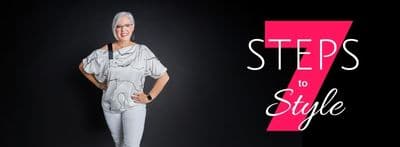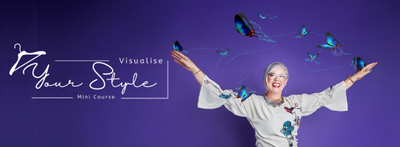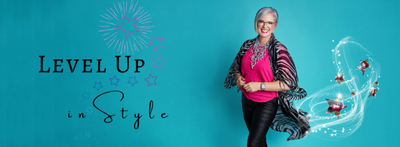
Stefanie Johnson
While many see no downside to being beautiful, a professor at the University of Colorado Denver Business School says attractive women face discrimination when it comes to landing certain kinds of jobs.
In a study released in the May/June Journal of Social Psychology, Stefanie Johnson, assistant professor of management at UC Denver Business School, found that beauty has an ugly side, at least for women.
Attractive women were discriminated against when applying for jobs considered “masculine” and for which appearance was not seen as important to the job. Such positions included jobs like manager of research and development, director of finance, mechanical engineer and construction supervisor.
“In these professions being attractive was highly detrimental to women,” said Johnson. “In every other kind of job, attractive women were preferred. This wasn’t the case with men which shows that there is still a double standard when it comes to gender.”
The study, co-authored by Robert Dipboye, professor of psychology at the University of Central Florida, Kenneth Podratz, an organizational development manager at UPS and Ellie Gibbons, research assistant at the University of Colorado Anschutz Medical Campus, found that attractive men suffered no similar discrimination and were always at an advantage.
According to Johnson, beautiful people still enjoy a significant edge. They tend to get higher salaries, better performance evaluations, higher levels of admission to college, better voter ratings when running for public office and more favorable judgments in trials.
A recent Newsweek survey of 202 hiring managers and 964 members of the public concluded that looks matter in every aspect of the workplace and they mattered more for women. When asked to rate nine character attributes on a scale of one to 10 with 10 being the most important, looks ranked third, above education and sense of humor, the magazine reported.
But in one narrow aspect of life, beauty can be a hindrance, something researchers have called the “beauty is beastly” effect.
“In two studies, we found that attractiveness is beneficial for men and women applying for most jobs, in terms of ratings of employment suitability,” according to the study. “However, attractiveness was more beneficial for women applying for feminine sex-typed jobs than masculine sex-typed jobs.”
In one experiment, participants were given a list of jobs and photos of applicants and told to sort them according to their suitability for the job. They had a stack of 55 male and 55 female photos.
In job categories like director of security, hardware salesperson, prison guard and tow truck driver, attractive women were overlooked. In each of these jobs appearance was perceived to be unimportant. Attractive women tended to be sorted into positions like receptionist or secretary.
“One could argue that, under certain conditions, physical appearance may be a legitimate basis for hiring,” Johnson said. “In jobs involving face-to-face client contact, such as sales, more physically attractive applicants could conceivably perform better than those who are less attractive. However it is important that if physical attractiveness is weighed equally for men and women to avoid discrimination against women.”
The study chided those who let stereotypes influence hiring decisions. Given the importance of hiring and the consequences of making a wrong choice, the authors said, managers need to rely more on information from the individual rather than on stereotypes about physical appearance.
See the article in the Denver Business Journal.
______
I’m interested to know, have you ever found that your looks enhanced or detracted from your ability to get a job or keep it?














The only time I've ever even realised that looks were being considered was a few years ago, when a client (someone new working for a company I already did freelance work for) made a snide aside about me being, essentially, old and ugly. Fortunately, I managed to remember that I'm good at what I do, and didn't say something rude to him. I'm still there; he's not.
During my college years, I didn't have money for clothes, makeup, haircuts, etc. and was just a little heavier than most of the women my age. I found that when trying to get part time jobs (especially those like waitressing, ideal for a college student with the flexible hours and tips), I couldn't even get an interview, but the tall, blonde girls always did. Also when I applied for retail jobs, never got an interview in the fashion-y places despite my retail experience at the time. When I finally did get a job at a department store, they put me in the boys' section where all of the other sales clerks were grandmothers.
I've been in a couple jobs where I've had great reviews but no promotions, only to watch women with looks but not much else move up ahead of me.
In the field I've worked in since the late 1980's, looks are pretty much irrelevant. We don't deal with the public, and it's all about experience and skills. It was pretty much a female-dominated field until the last decade or so; now we're about 50-50 men and women.
Ok, if this study consisted of people ranking people for potential jobs based on photographs, I am not particularly convinced. If all you have is a photograph, of COURSE you are going to rank by appearance (depending on how important you think appearance might be for a given job). You have nothing else to go on. Now if they were comparing rankings of identical resumes, some with photographs, some without, then we'll talk. I don't doubt appearance is an issue, and that it can sometimes be a drawback, but I'm not convinced this particular study shows something that would be in effect in a real-world situation.
I don't think they have detracted from my ability to get and/or keep a job but I deal with a credibility issue on a regular basis. I am reasonably attractive, big-busted, long legs and I enjoy dressing like a woman. I am always professional in my style of dress and, thanks to Imogen, I am stylish. I recently competed for and won a coveted position at work. The reaction I received was divided squarely into two camps — one group (the largest) gave heartfelt congratulations and support. The other group made a direct correlation between my success and my bust size and/or my looks.
Never mind that I have years of experience. And please ignore the high performance evaluations. Oh, and by the way, my MENSA membership doesn't mean anything either.
I guess I look at it this way — you poor slobs keep staring at my boobs while my brains come along behind you and kick your ass.
My race has been a hindrance, yes.
But as for being beautiful (which I do not consider myself), I do remember more than one engineering firm I worked for that looked down on attractive women. Their school of thought equated beauty with stupidity. And yes, this came from the women as well as the men.
Since I was an admin/receptionist, I thought maintaining a professional, attractive image was proper and exempted me from this discriminatory thought culture but I was wrong.
I was qualified for the first job I ever got (administrative assistant in a brokerage house), but I don't think my looks hurt at all. Once I was there of course, I was continually discriminated against for being a woman. I was also on the receiving end of countless dirty jokes and naughty comments often from men who were nearly 20 years older than me.
When I left finance and went to be a teacher, I'm not sure my looks helped, but interviewing in a suit, just as I had in finance, made a huge impression on my current boss, and was at least part of what snagged me the job.